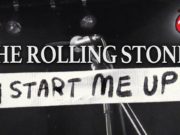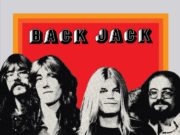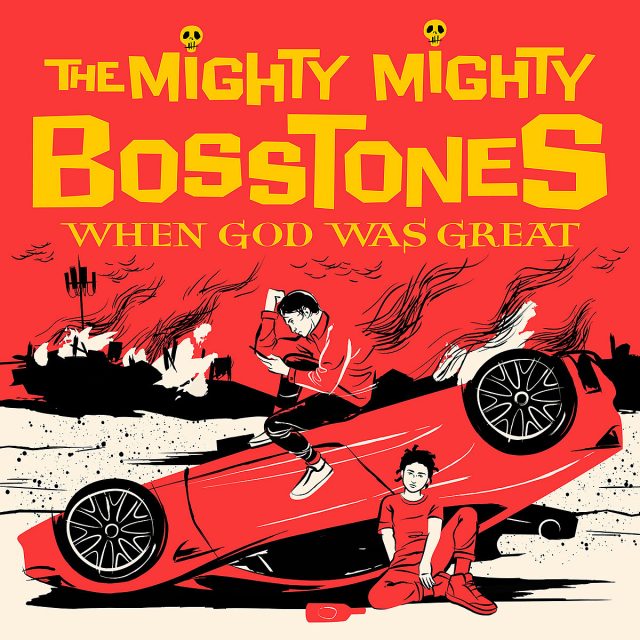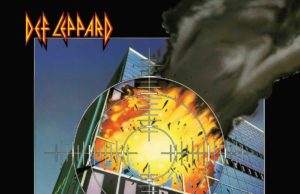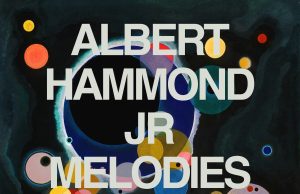THE EDITED PRESS RELEASE: “The Mighty Mighty BossToneS are a band on a mission. Since their formation, the pioneering ska-punk act has eschewed musical trends, survived the pitfalls of mainstream success, and continually crafted albums that pay homage to a genre that they helped create. The band’s 11th studio album When God Was Great is the culmination of their extensive and all-embracing career and sees the band bringing back friends, tourmates, and bandmates from the past for a sonic celebration that stresses the power of perseverance and human connection during tumultuous times. “As grim as everything around us was in the outside world, this was the most fun we ever had making a record,” explains the band’s outspoken frontman Dicky Barrett. “The feeling in the studio was really magical and I think that quality presents itself on the finished — here’s an ugly word — product.”
Co-produced by longtime collaborator Ted Hutt (The Gaslight Anthem, Dropkick Murphys) and Rancid frontman Tim Armstrong (Transplants, Jimmy Cliff) at Armstrong’s Ship-Rec Studios in Silver Lake, California. The album sees the band — Barrett, bassist Joe Gittleman, saxophonists Tim Burton and Leon Silva, Ben Carr, drummer Joe Sirois, guitarist Lawrence Katz, keyboardist John Goetchius, trombonist Chris Rhodes and founding BossTone and original guitar player Nate Albert — coming together to create a collection of songs that initially arose out of a collective sense of loss. “With all of this time on our hands, we started writing with a sense of urgency and we were really inspired. I don’t like to use that word because I think inspiration comes from a better place, but all of a sudden there was nothing stopping us, and we started producing at a fevered pitch and a rapid pace.”
The band’s newfound burst of enthusiasm was expertly captured by Hutt — who produced the previous three BossToneS albums, most recently 2018’s While We’re At It — and has proven himself to possess a relentless work ethic that parallels the band’s own drive. However, unlike past BossToneS albums, this time around the studio dynamic was complimented by the band’s longtime friend Armstrong, who also played guitar and sang on the album. “Tim’s wisdom and insight are often astonishing, the knowledge he’s gained over the years, combined with the God-given intelligence he was born with is all the stuff that I should have been putting in my head but never did,” Barrett says with a laugh. “He’s been doing what we’ve been doing under very similar circumstances with the same head and heart and we’ve traveled in the same universe since we both wanted to be in a band. Please allow me to add that Tim is a warm and wonderful person.” The parallels between Armstrong and the BossToneS are numerous: From the ska-punk connection of Operation Ivy to Rancid’s similar experience with mainstream success in the 1990s.
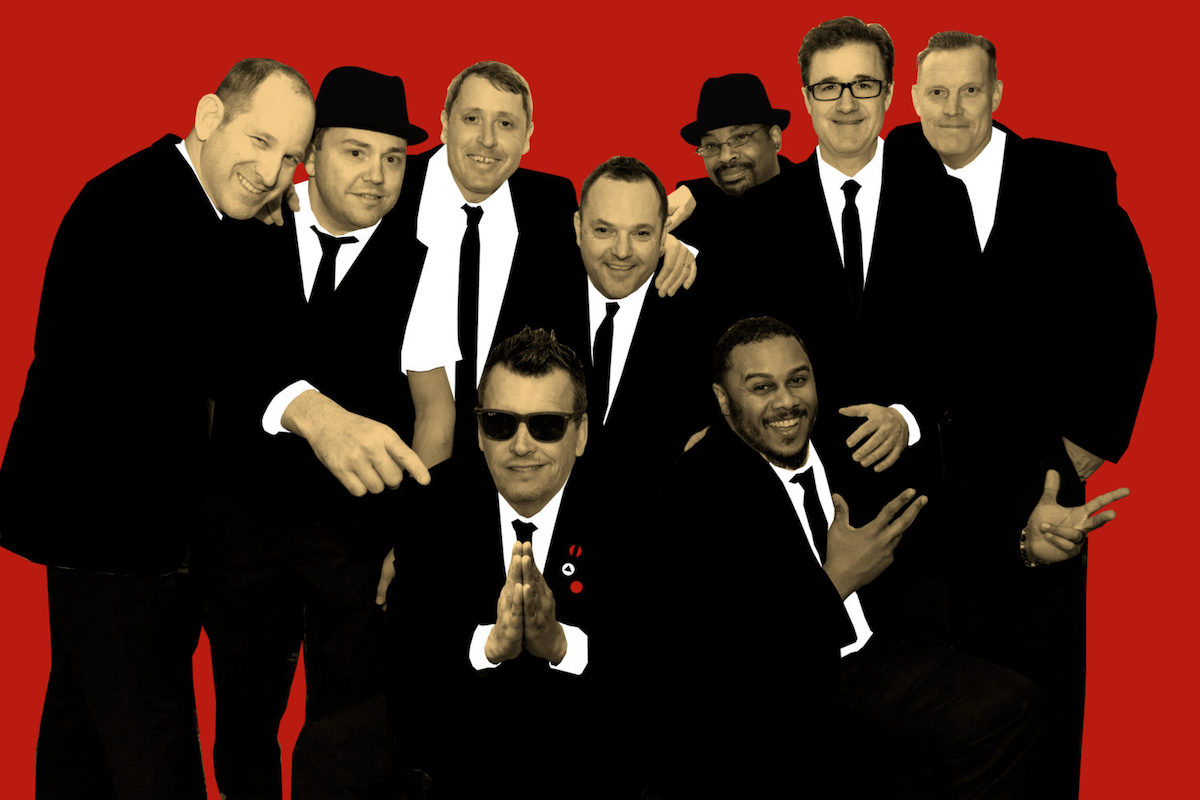
That cosmic confluence of past, present, and future lies at the core of When God Was Great. From the ska opera ambition of the title track which recounts the original members’ early days exploring the streets of Cambridge, Massachusetts, to the anthemic guitar-driven The Killing Of Georgie (Part III) and the instantly infectious rocker Decide, which asks the listener: “Should we cash in or should we let it ride? Will this be sanctioned or be nullified? We have got to decide.” Instead of being rooted in a particular time or concept, When God Was Great is an atypical amalgam that could only exist in the BossToneS’ musical universe. Let’s put it this way: Can you name another album that includes a Creedence Clearwater Revival cover (As Long As I Can See The Light) and a cameo from Madball’s Freddy Circien (Bruised)? “It doesn’t add up I guess or make much sense. You’ve got a guy with my voice that’s fronting an often 10-piece ensemble with an exceptional horn section and one of the world’s best bass players … and there’s a guy dancing,” Barrett admits. “Or perhaps it makes perfect sense because if you tell me that this recipe isn’t going to work, I’ll say ‘Oh yes it is, and it does’. Feel free to apply that logic to our new album, the more people think it’s not going to make sense, the more likely it is going to make sense in our world.”
This sentiment is evident in the album’s nearly eight-minute-long closer The Final Parade, a masterful ska opus featuring dozens of guests spanning The Mighty Mighty BossToneS’ career including Armstrong, Jake Burns (Stiff Little Fingers), Angelo Moore (Fishbone), Jay Navarro (Suicide Machines), Jimmy G (Murphy’s Law), Christian Jacobs (The Aquabats), John Feldmann (Goldfinger), Steve Jackson (The Pietasters), members of H20 and Less Than Jake, along with some of the new ska-guard such as Aimee Interrupter and The Interrupters, Jet Baker (Buster Shuffle) and Laila Khan (Sonic Boom Six). Barrett refers to the song as “a love letter to ska” that has held strong through the genre’s various waves, trends, and iterations. “Ska is always something that’s been very close to my heart. The people that have contributed to this track and countless other like-minded ska lovers, mean a great deal to me and the BossToneS. Without overcomplicating things here, I guess the time felt right so we took the opportunity to say, ‘Thank you ska music, we hope we didn’t do too much damage! either way, we love you.”
That sense of love and gratitude is the plaid cord that weaves When God Was Great’s seemingly disparate threads together, and Barrett credits the band’s friends and family for continuing to inspire and support them to keep pushing their sound forward after all these years together. “Just about everybody that’s been a BossTone played on this album or contributed to it,” he explains, noting the inclusion of the band’s founding guitarist Nate Albert, who hasn’t performed on an album since 2000’s Pay Attention. Or saxophone player/BossTone/airline captain Roman Fleysher, whose contribution can be heard on the track Bruised. Then there are actual family members like Silva’s daughter (The Killing Of Georgie Part III) and Barrett’s children (As Long As I Can See The Light), who can at times be seen performing on stage with the band as well.
“The album ends with Jamaican ska reggae artist Stranger Cole saying, ‘Family and friends get together again’ and if there is an overlying theme to both what we were experiencing and what we were creating, that line really sums it up,” Barrett explains in gravelly voice that sounds strangely reassuring during such uncertain times. “As simple as that philosophy is, it’s also the truth — and that’s what we are offering with this collection of songs.”
https://youtu.be/mTZ3MMBCAgE


